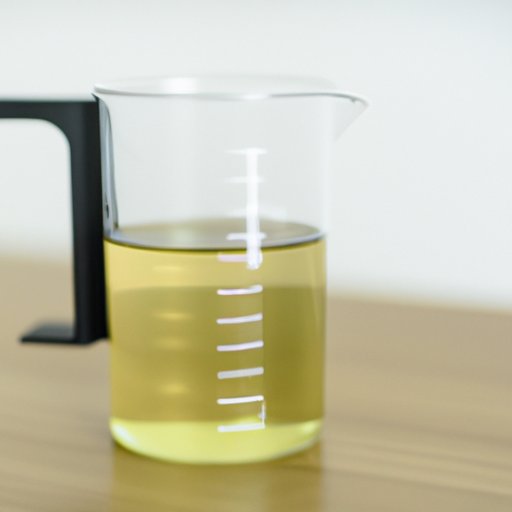
Introduction
Water weight, also known as fluid retention, occurs when excess fluids build up in the body’s tissues and can lead to bloating, puffiness, and weight gain. While it’s important to maintain a healthy fluid balance, excessive water weight can be uncomfortable and even dangerous. Fortunately, there are several methods to help reduce water weight, including increasing water intake, reducing sodium intake, exercising, increasing potassium intake, drinking herbal teas, eating more fiber, and reducing stress.
Increase Your Water Intake
While it may seem counterintuitive, drinking more water can actually help reduce water weight. Dehydration can cause the body to hold onto water, so staying hydrated can promote healthy fluid balance and reduce water retention. Aim to drink at least 8 glasses of water per day and consider sipping water throughout the day rather than chugging large quantities at once.
You can also increase your water intake by consuming water-rich fruits and vegetables, such as watermelon, cucumber, and celery. These foods not only help hydrate you but can also provide added nutrients and antioxidants.
Reduce Sodium Intake
Sodium is a mineral found in many foods, and excessive consumption can cause the body to retain water. Reducing your sodium intake can help flush out excess fluids and reduce bloating. Aim to consume no more than 2300 milligrams of sodium per day, and avoid processed and packaged foods that tend to be high in sodium.
You can also try seasoning your foods with herbs, spices, and citrus instead of salt to add flavor without the added sodium.
Exercise
Exercise can help reduce water weight in several ways. Sweating during a workout can help flush out excess fluids, and exercise can also promote healthy circulation and aid in detoxification. Cardiovascular exercises, such as running, cycling, or swimming, can be particularly effective at burning calories and reducing water weight.
Regular exercise can also help maintain a healthy weight and reduce the risk of other health issues associated with excess water weight, such as high blood pressure and inflammation.
Increase Potassium Intake
Potassium is a mineral that plays a key role in regulating fluid balance in the body. Consuming foods rich in potassium can help reduce water retention and promote healthy hydration. Foods such as bananas, avocados, and sweet potatoes are all rich in potassium and can be included as part of a balanced diet.
Drink Herbal Teas
Some herbal teas have natural diuretic properties that can help reduce water weight. Dandelion tea, for example, can help promote healthy digestion and reduce bloating, while nettle tea can help flush out excess fluids. Green tea is also a great option, as it contains antioxidants and can aid in weight loss.
It’s important to note that some herbal teas can have side effects and interact with medications, so it’s always best to consult with a healthcare professional before incorporating new teas into your diet.
Eat More Fiber
Fiber plays an important role in healthy digestion and can help reduce water retention. Consuming fiber-rich foods, such as fruits, vegetables, and whole grains, can help promote healthy bowel movements and prevent constipation. This can help reduce bloating and promote healthy water balance in the body.
Reduce Stress
Stress can cause the body to produce cortisol, a hormone that can contribute to water retention and fluid buildup. Reducing stress through relaxation techniques such as yoga, meditation, or deep breathing exercises can help reduce cortisol levels and promote healthy fluid balance.
Conclusion
Reducing water weight can be achieved through a combination of healthy lifestyle habits, such as increased water intake, reduced sodium intake, exercise, increased potassium intake, drinking herbal teas, eating more fiber, and reducing stress. By incorporating these methods into your daily routine, you can enjoy a healthy fluid balance and decreased water weight. Remember to consult with a healthcare professional if you experience excessive water retention or have any concerns about your health.




